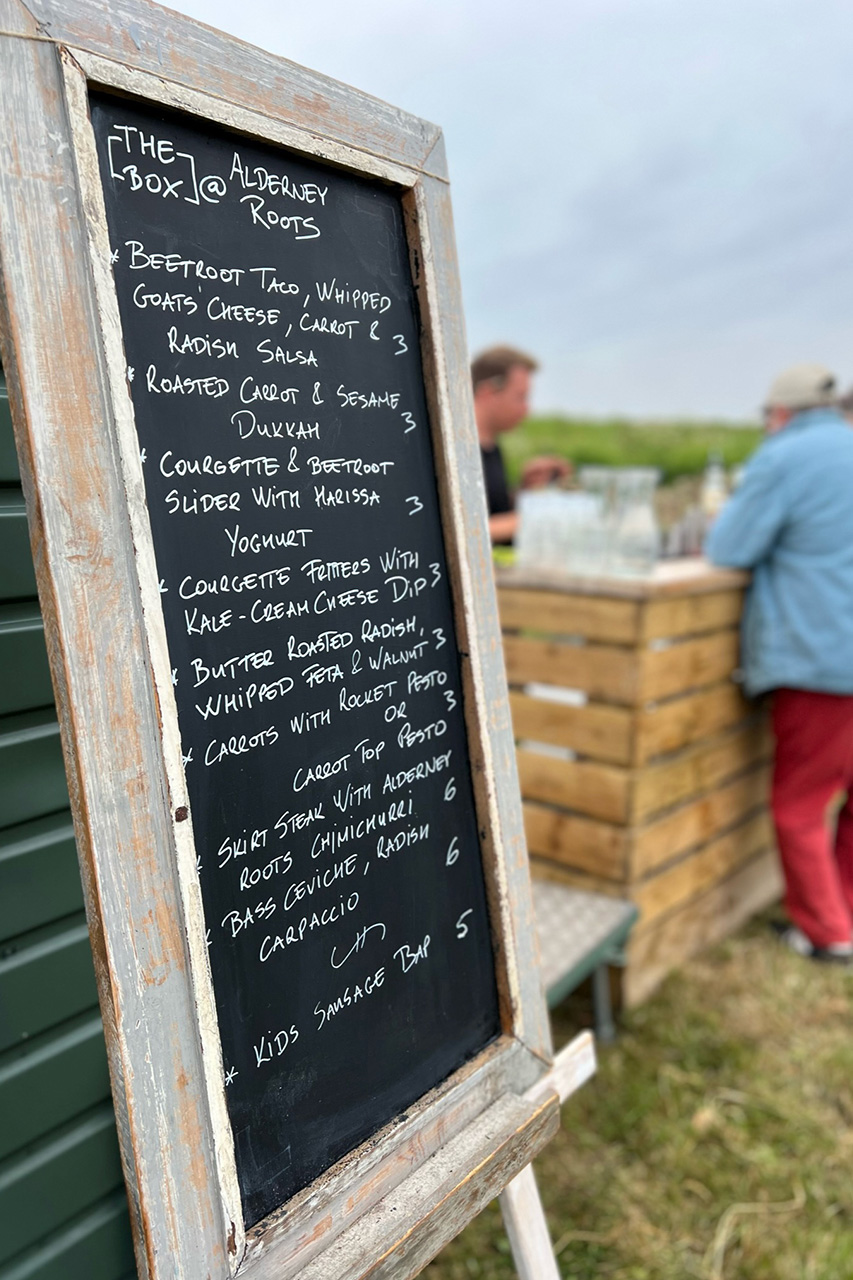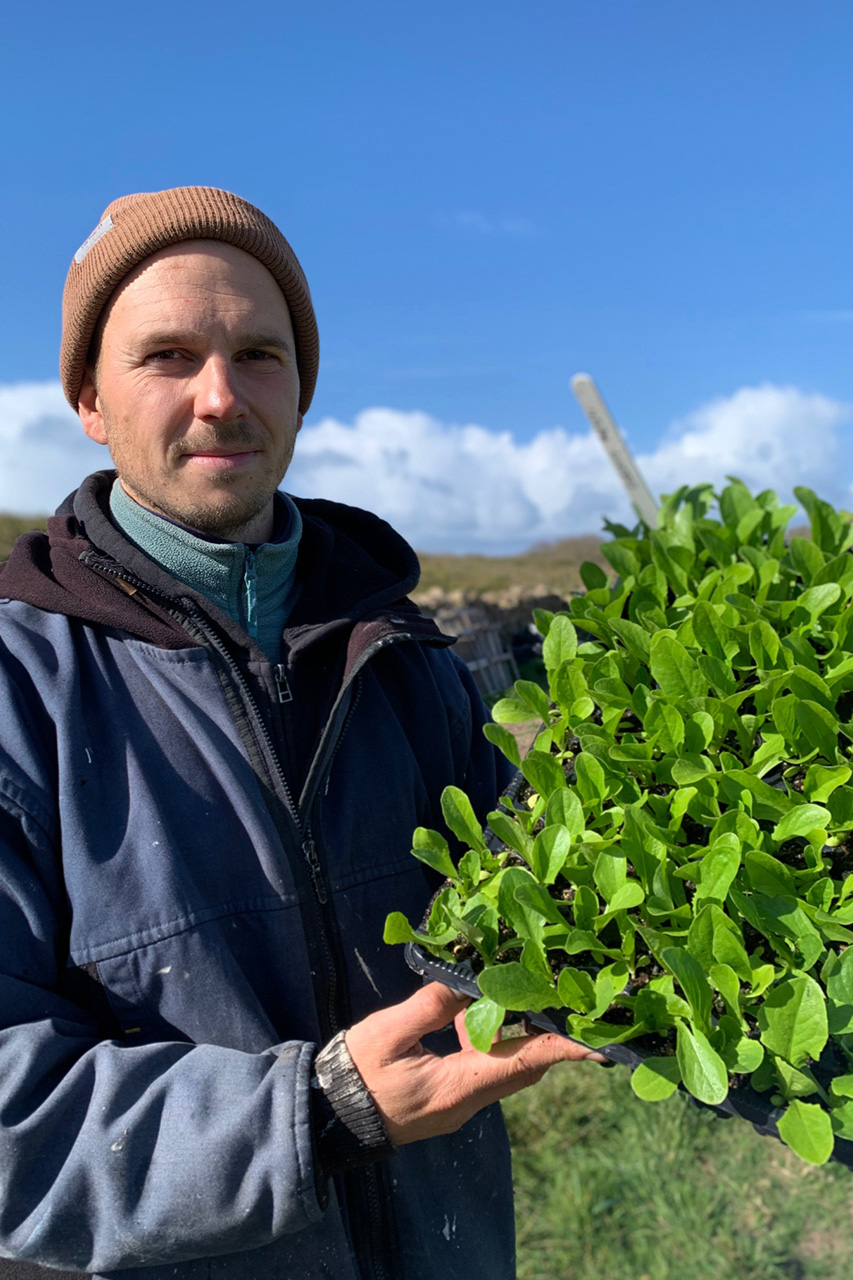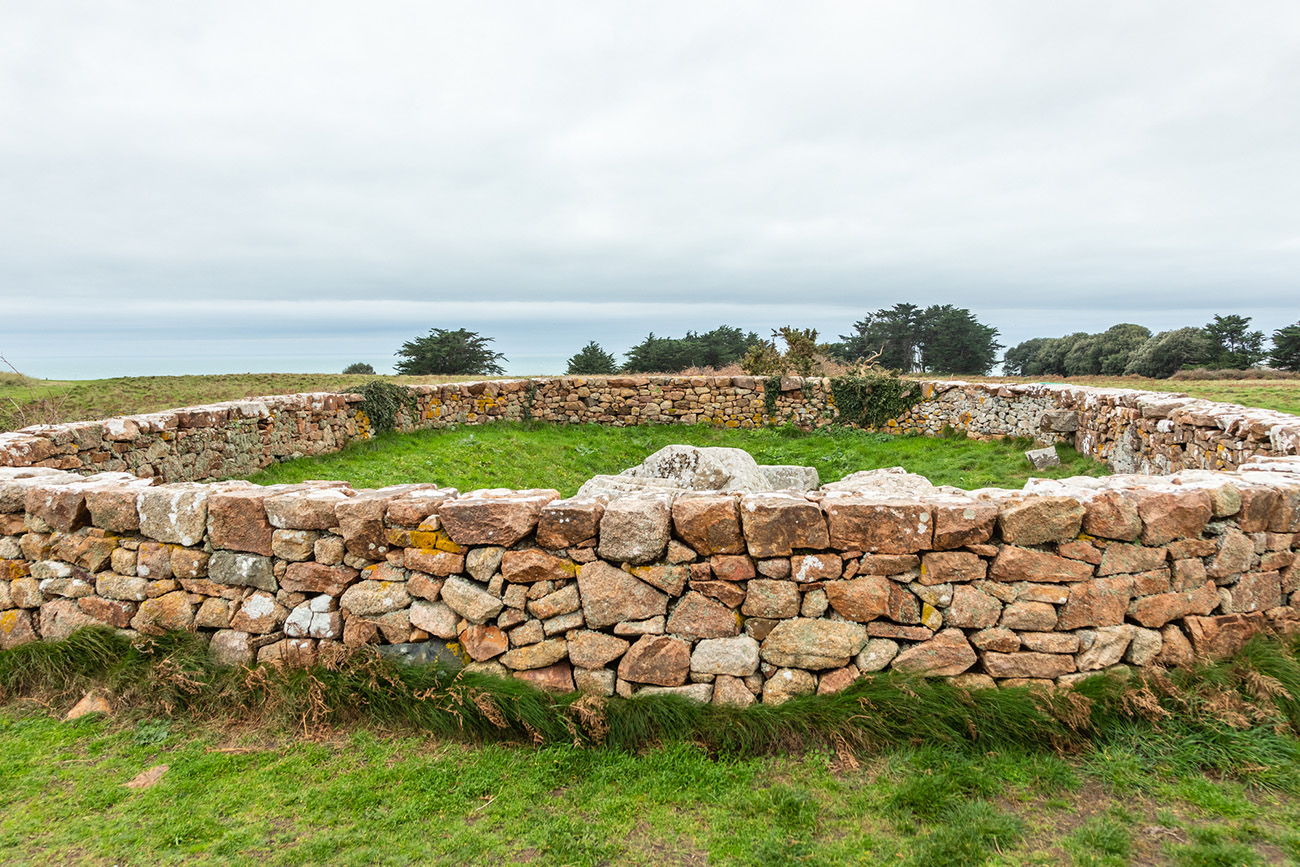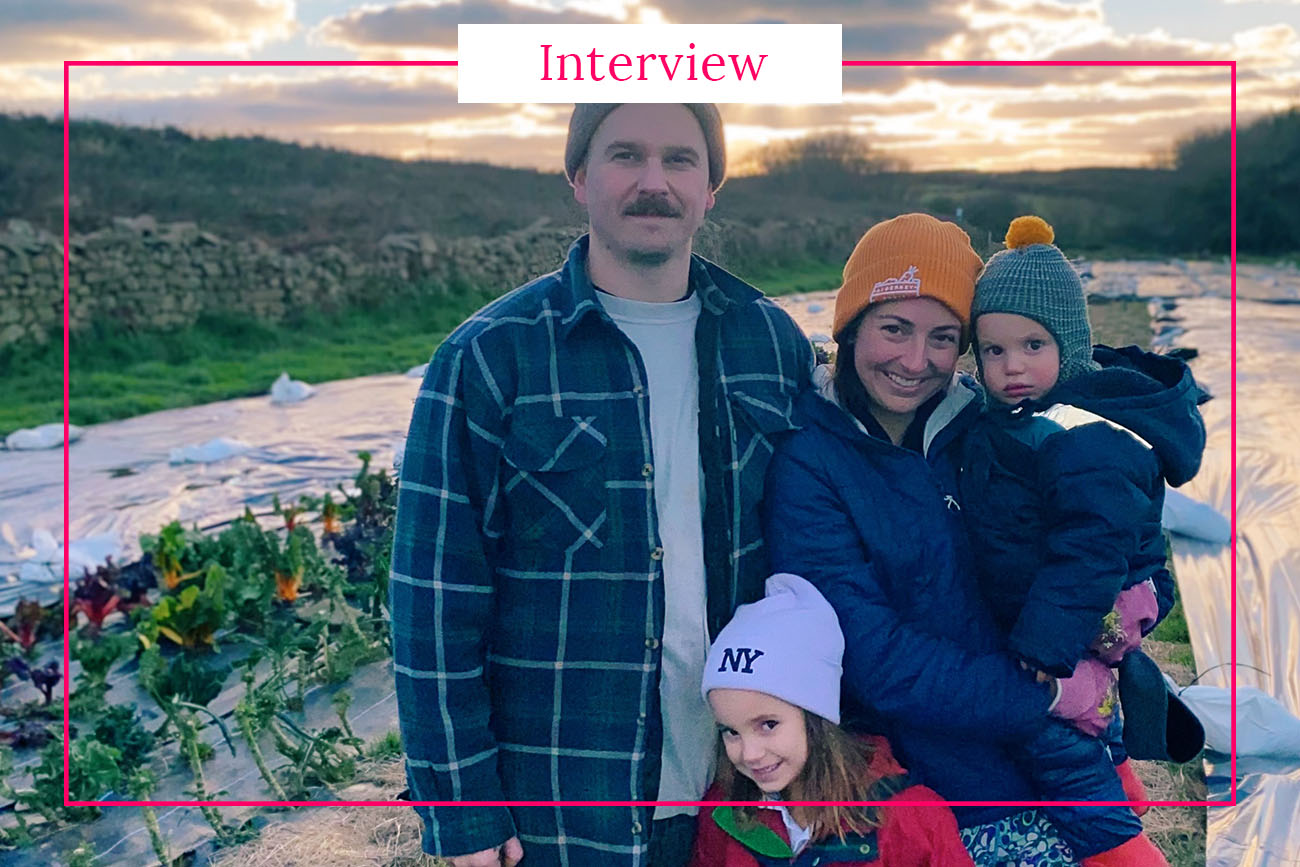
Today they run a charming family market garden Alderney Roots, dedicated to providing chemical-free and consciously grown vegetables.
In our conversation, we asked Rosie and Sam about their inspirations for starting Alderney Roots, how the local community can engage with their garden, and what advice they would offer to someone aspiring to begin their own chemical-free garden.
What inspired you to start a chemical-free and consciously grown market garden?
Alderney Roots was inspired by a commitment to local, sustainable agriculture. The venture aims to address the demand for chemical-free, consciously grown produce on Alderney. We share a passion for promoting healthy lifestyles, ensuring food security, and building a resilient agricultural economy, with a strong focus on involving the island’s youth in education and development.
What are the specific crops that thrive particularly well in Alderney’s climate and soil conditions?
Salads, herbs, kale, carrots, tomatoes, and cabbages have been our biggest successes this year. Our efforts to nurture the soil and understanding its deficiencies has been the main contributor to the success. We have invested time and care into replenishing the soil with the essential nutrients and organic matter it needed.
What challenges have you faced in maintaining a chemical-free garden, and how do you overcome them?
Maintaining a chemical-free garden on Alderney presents its share of challenges. The island’s unique climate, with its salty air, and harsh weather conditions, means we have to think outside the box when coming up with solutions.
We come up with alternatives to conventional methods on a daily basis i.e using plenty of seaweed to cover beds and high potency nettle teas to aid growth. Our main challenge has been that of operating as a small business on Alderney, the island’s remote location means we often face logistical hurdles in sourcing equipment and materials, impacting our ability to scale efficiently.
Additionally, the limited availability of local funding options and subsidies compared to mainland farms requires us to be highly resourceful in our expansion efforts. However, these challenges also inspire our commitment to building a sustainable, community-focused business that not only provides fresh produce but actively contributes to the resilience and growth of Alderney.
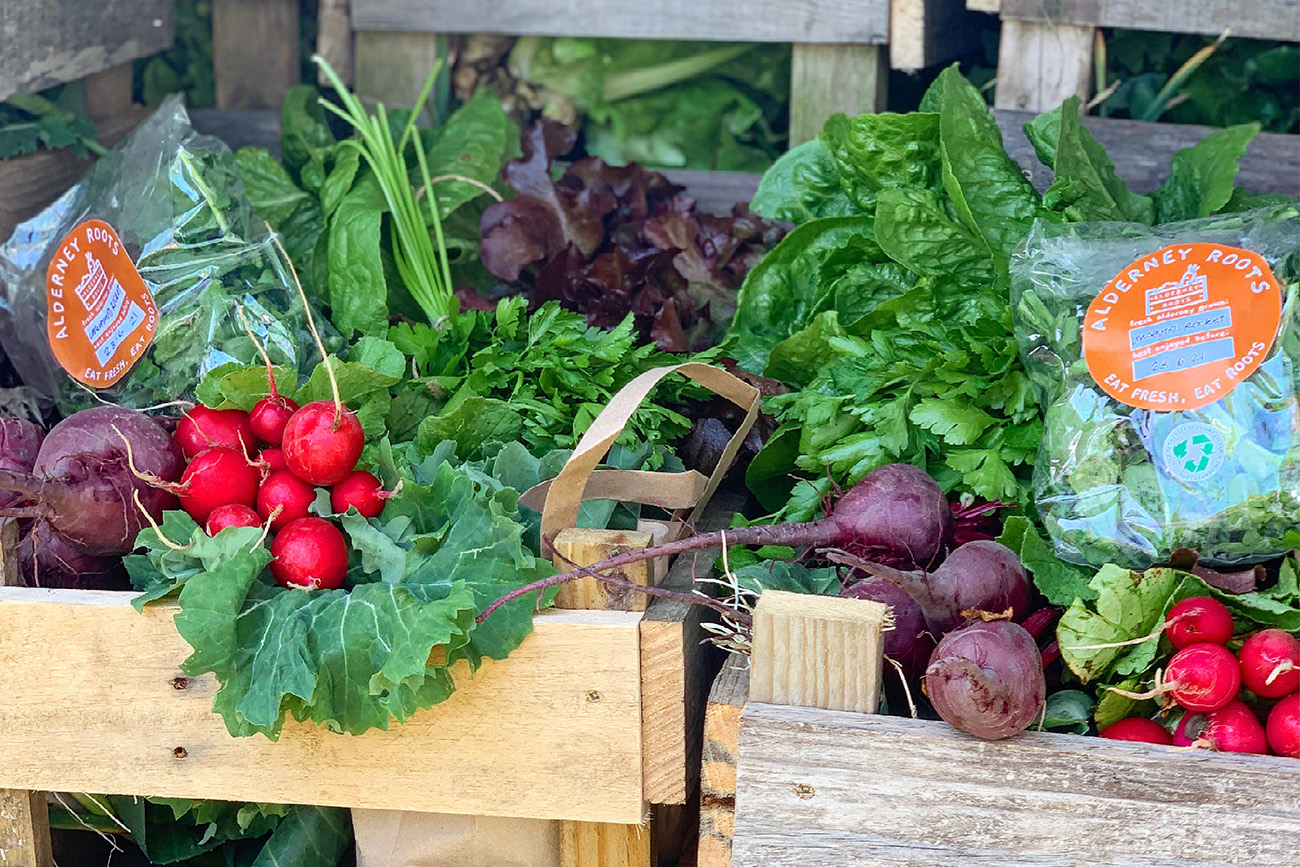
Alderney Roots vegetable boxes, photo credit: Rosie Evans
How can the local community actively participate and connect with your garden?
Joining Alderney Roots is more than subscribing to a weekly veg box; it’s an invitation to be part of a community-driven initiative. We encourage everyone to get involved, whether it’s through volunteering on our “weed n feed” days, participating in educational programs, or attending community events hosted at our farm.
For those eager to contribute in other ways, sharing your thoughts and ideas, or even collaborating on projects, is always welcome. Our mission extends beyond the farm and aims to connect people and the food that they eat!
Please can you share more information about your vegetable boxes? Where can we place orders, and how frequently are these boxes available?
Alderney Roots provides a veg box scheme within the framework of Community Supported Agriculture (CSA), a model that helps to build a connection between consumers and the farm. With CSA membership subscribers ultimately become shareholders in the farm, enjoying a weekly supply of freshly harvested, organically grown vegetables as dividends.
This unique approach not only supports local agriculture but also allows the subscriber to share in the seasonal fluctuations and joys of farming. To find out more information you can contact us on info@alderneyroots.com or drop us a message on Instagram / Facebook @alderney_roots.
What does your typical working day look like?
5am – Wake up, make porridge for small people.
6am – Get to farm and eat leftover porridge and drink a large quantity of coffee
6:15am – Feed the chickens
6:30 – 9am – harvesting, weeding, planting and irrigation
9am – more coffee
9:15am – make up boxes for 40 CSA members
12midday – more coffee, and a spot of lunch
12:30pm – deliver boxes to subscribers
2pm – site maintenance, turning compost, mending polytunnels etc.
6pm – home time – dinner and BED zzzzzz! (Based on a summers day – in winter we get a bit of a lie in!!)
- Photo credit: Rosie Evans
- Photo credit: Rosie Evans
Please can you share with us what aspects of your work in the garden you find most rewarding?
Connection with the community is undeniably the most rewarding aspect. Engaging with the people of Alderney, whether it’s through veg box subscriptions or community events, creates a meaningful bond that means so much more than the transactional nature of business. Beyond the vegetables, the farm becomes a shared space where conversations about sustainable living, regenerative farming, and local food systems are happening on a daily basis.
What advice would you offer to someone who is interested in starting to grow their own chemical free vegetables?
1. Educate Yourself – Learn about organic and chemical-free farming practices. Understand the basics of soil health, composting, and natural pest control methods. Read LOTS of books!
2. Start Small – Begin with a manageable plot or space. Starting small allows you to learn and adjust without becoming overwhelmed.
3. Quality Seeds and Soil – Invest in high-quality, organic seeds. Good soil is the foundation of a healthy garden, so focus on improving soil fertility through compost and organic matter.
4. Companion Planting – Explore companion planting strategies to naturally control pests and enhance growth. Certain plants benefit each other when grown in proximity.
5. Crop Rotation – Practice crop rotation to prevent soil-borne diseases and maintain soil fertility. Avoid planting the same crops in the same location every year.
6. Patience and Perseverance – Growing takes time. Be patient with the process and learn from both successes and failures. It’s a continual learning experience!
7. Community Engagement – Connect with local gardening communities or online forums. Sharing experiences and learning from others can provide valuable insights.
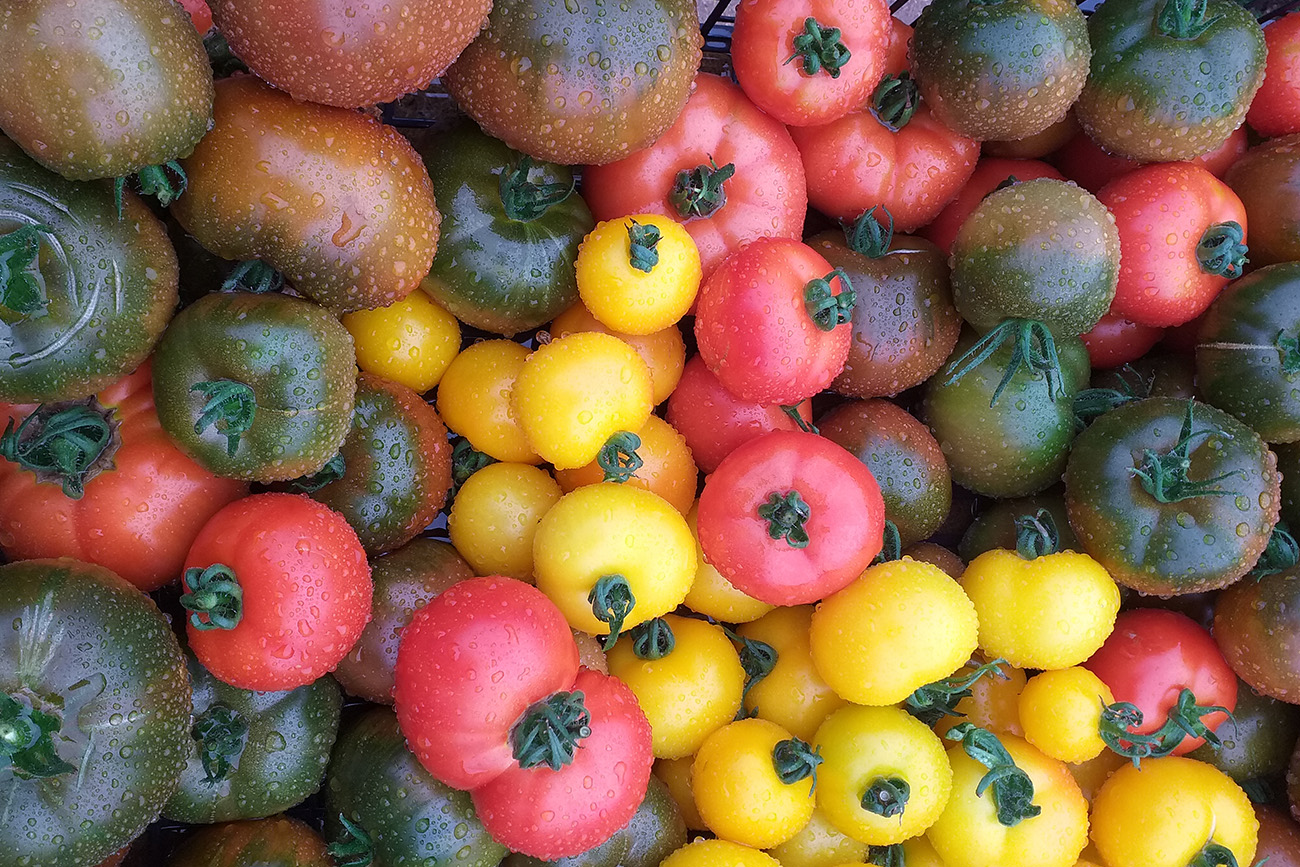
Photo credit: Rosie Evans
What is your favorite vegetable, and could you share your top recipe featuring this particular vegetable?
Choosing a favourite vegetable is like picking a favourite child, but this year, the standout star has to be our cauliflower. The elevated Cauliflower Cheese, with Gruyère, crispy onions, and a panko topping was a firm favourite in our household. We added leeks and onion from the garden, making an insanely tasty, decadent side dish for our Sunday roast!
When you need to unwind in Alderney, where do you go? What are your favourite spots on the island?
We feel so lucky to call this beautiful island our home and we are never short of an activity, when we are not at the farm you can find us relaxing on Longis beach or having a well-earned beverage at the Georgian House Pub!
If you wish to be a part of this community-driven initiative and subscribe to weekly vegetable boxes, please visit Alderney Root’s social media accounts for more details. Go to Instagram or Facebook @alderney_roots or reach out via email at info@alderneyroots.com.

